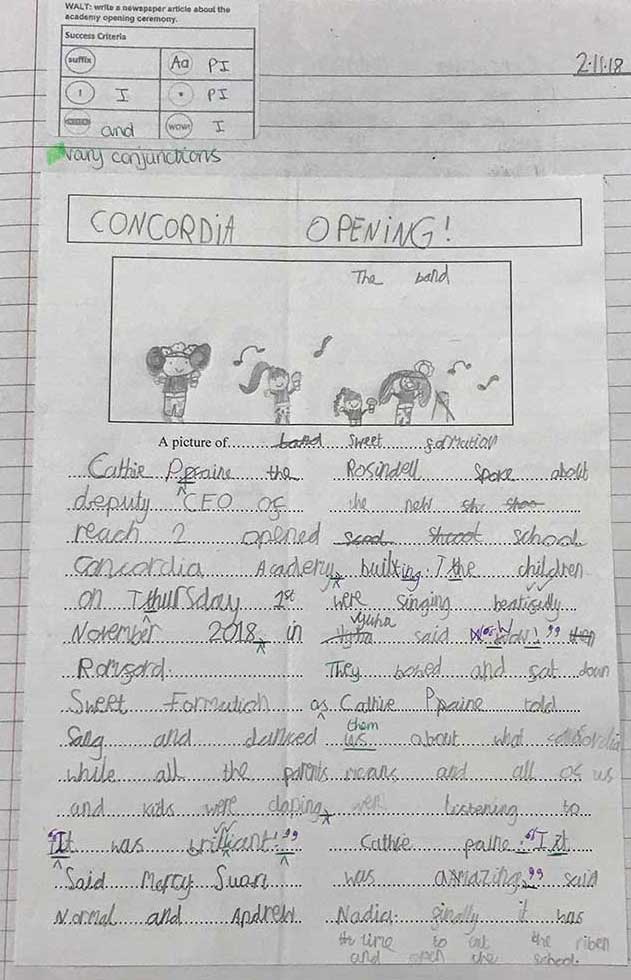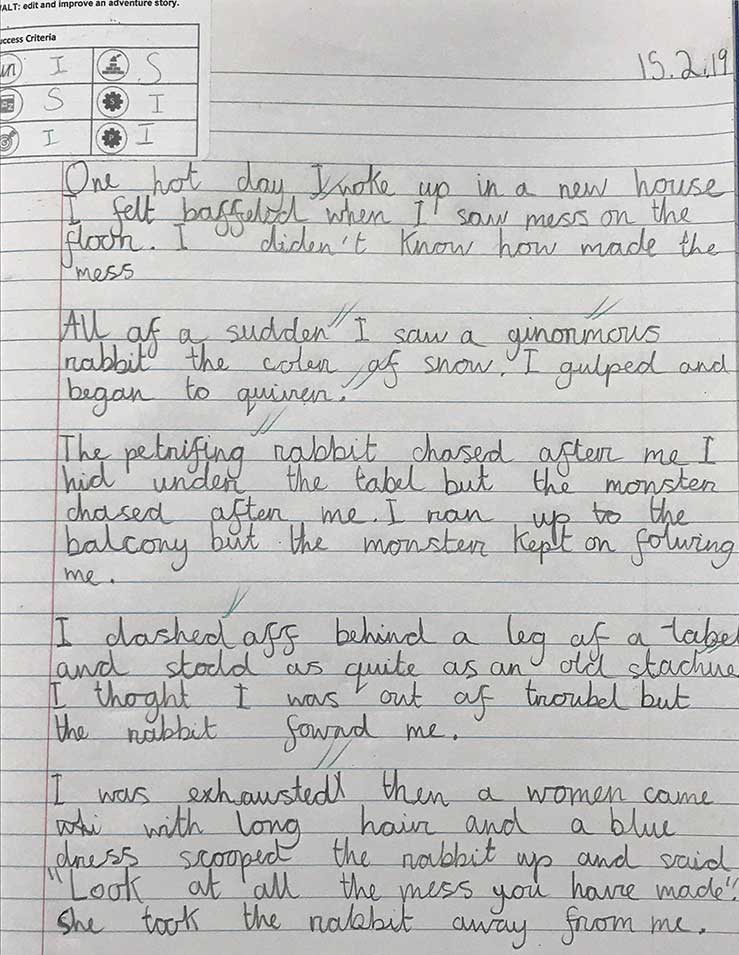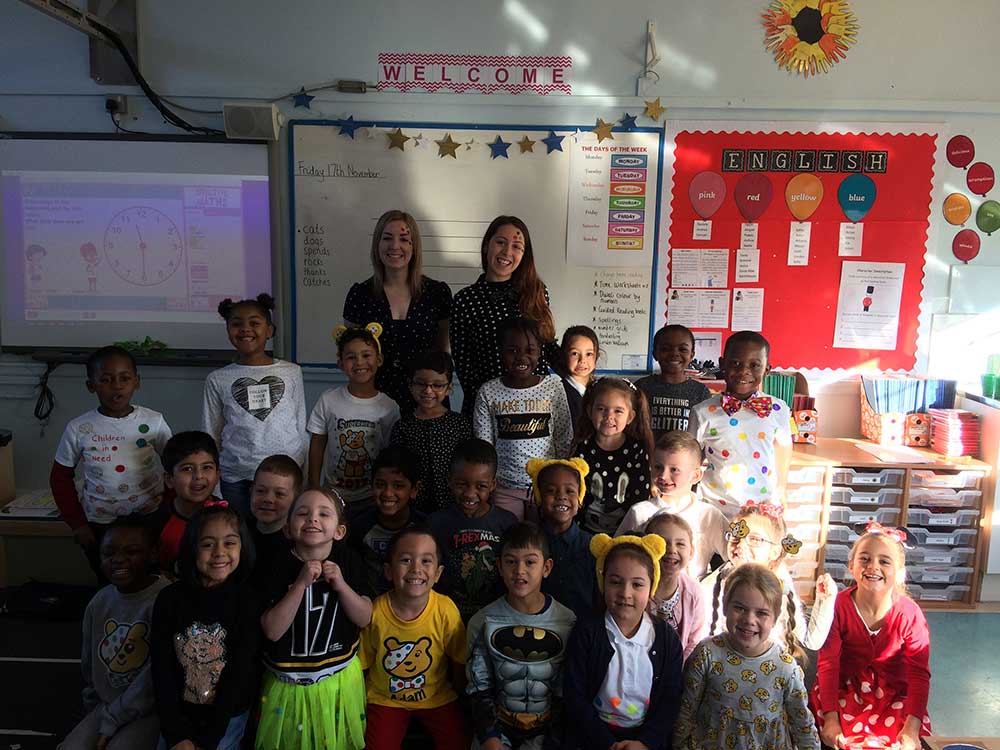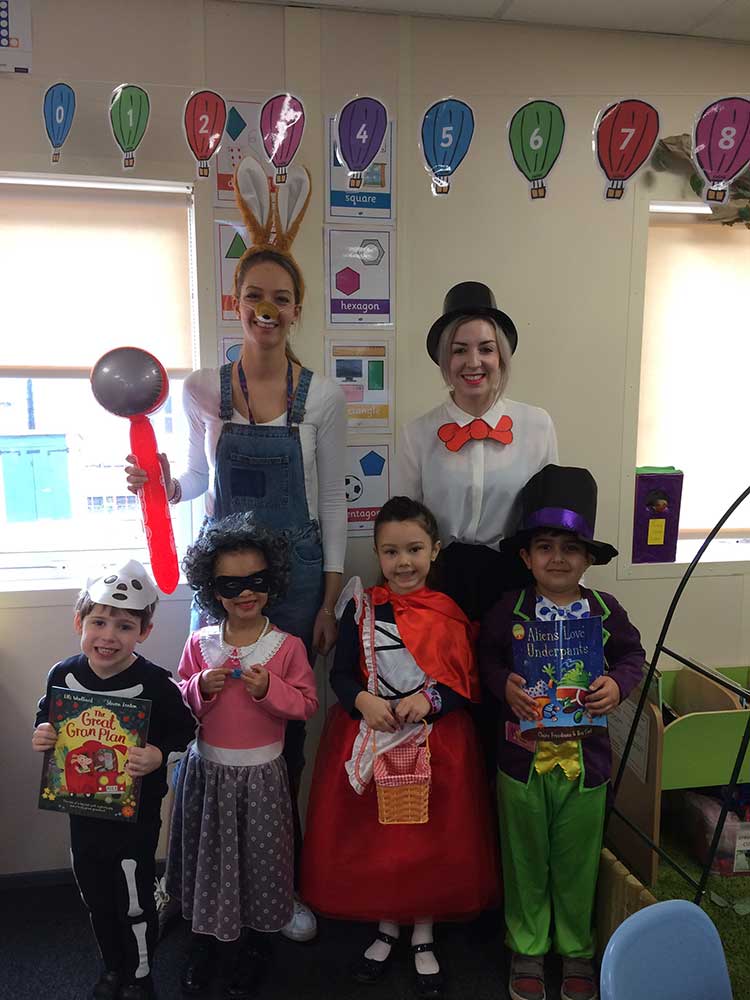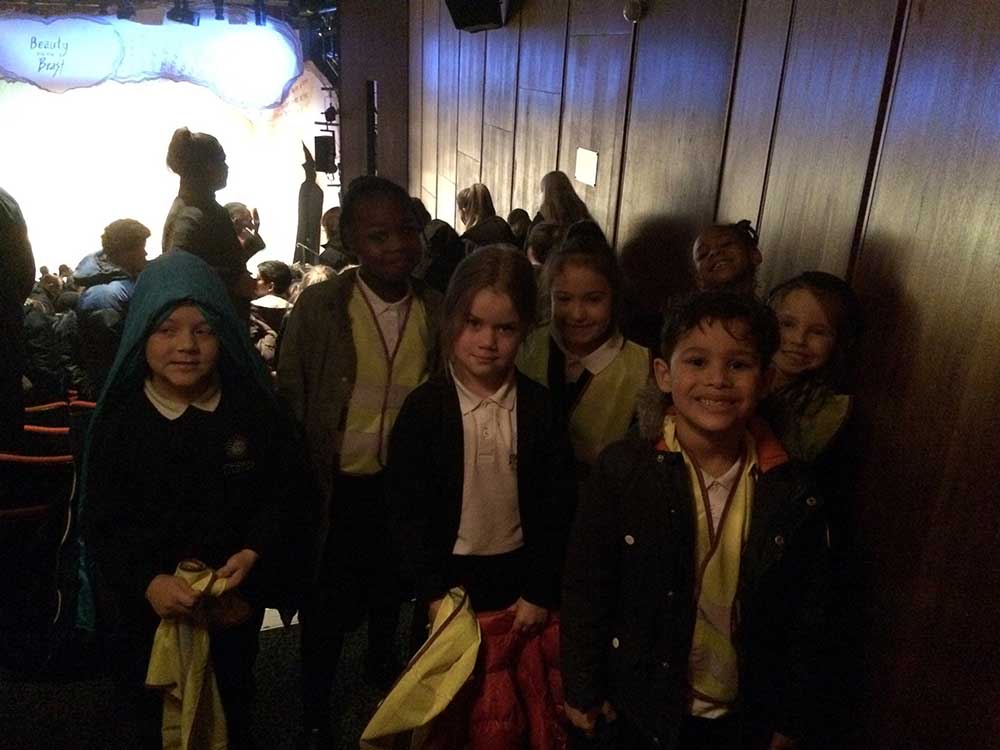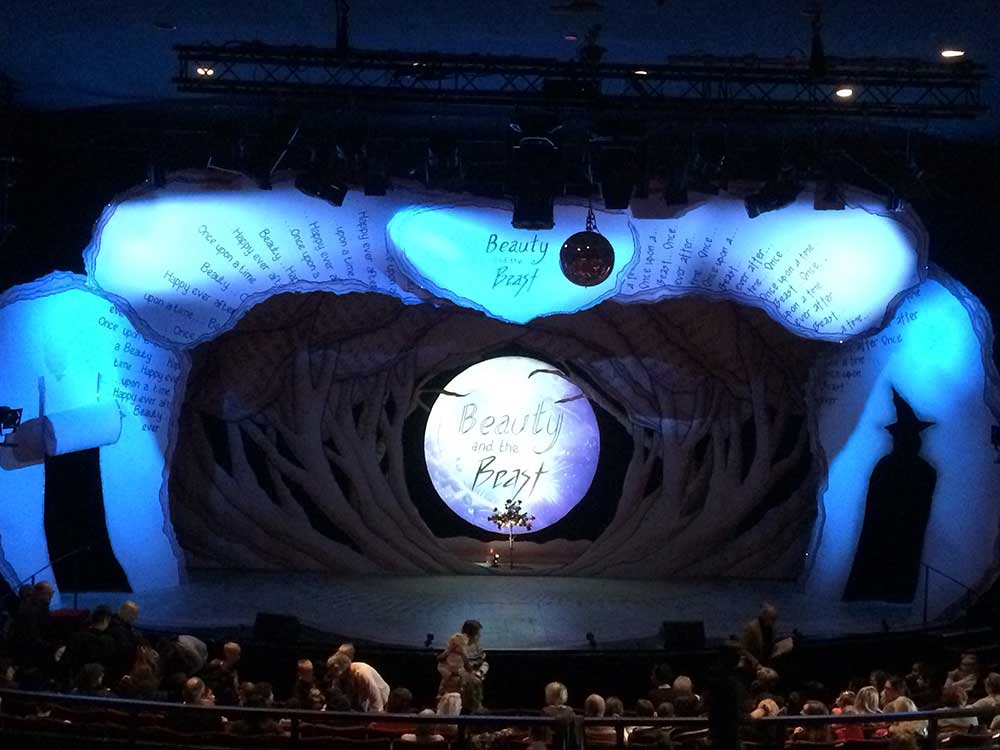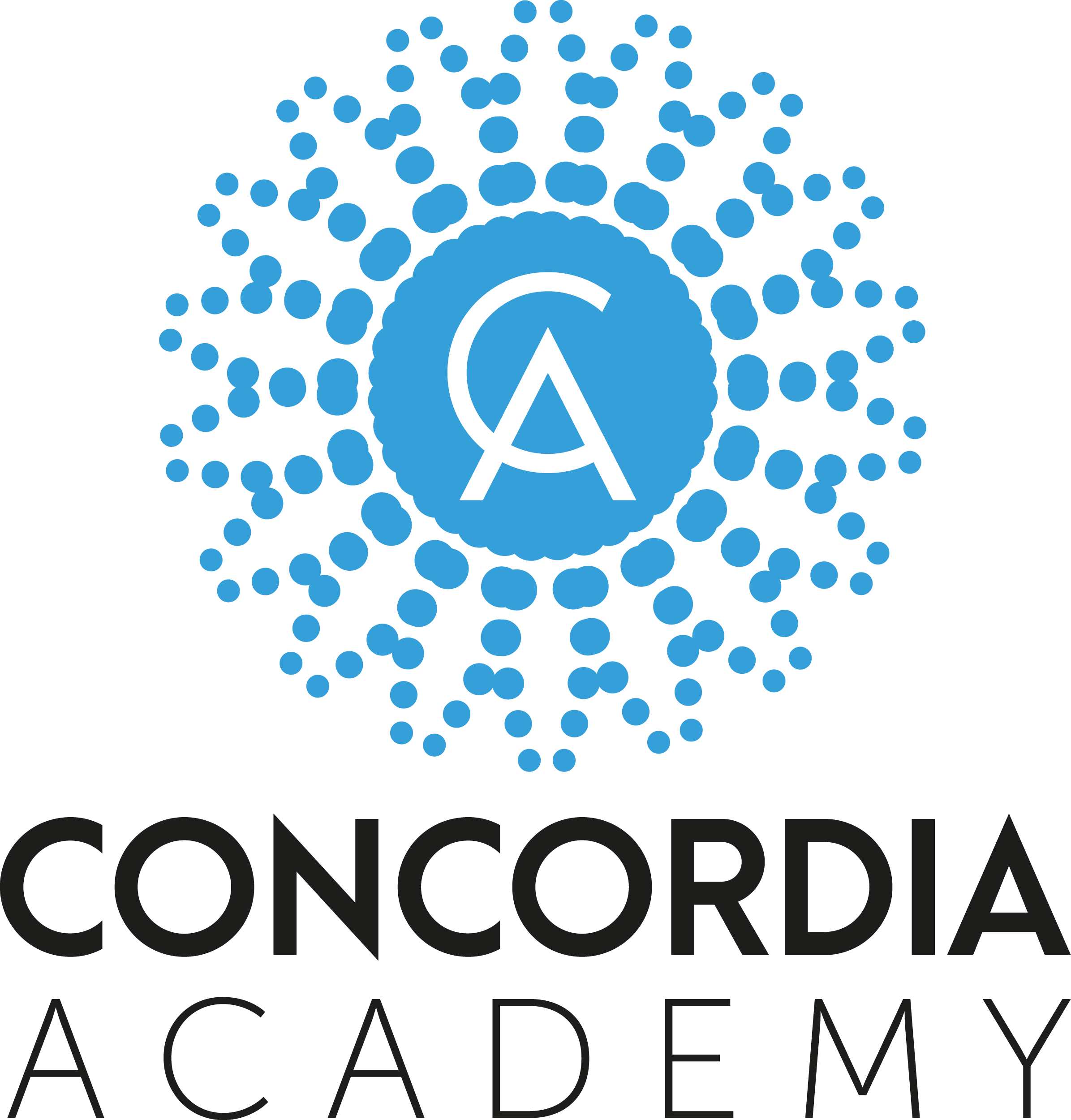'Literacy is a bridge from misery to hope.' - Kofi Anan
For all children, we prioritise learning the fundamentals of literacy – fluency in speaking and listening, fluency and comprehension in reading, and basic skills in writing.
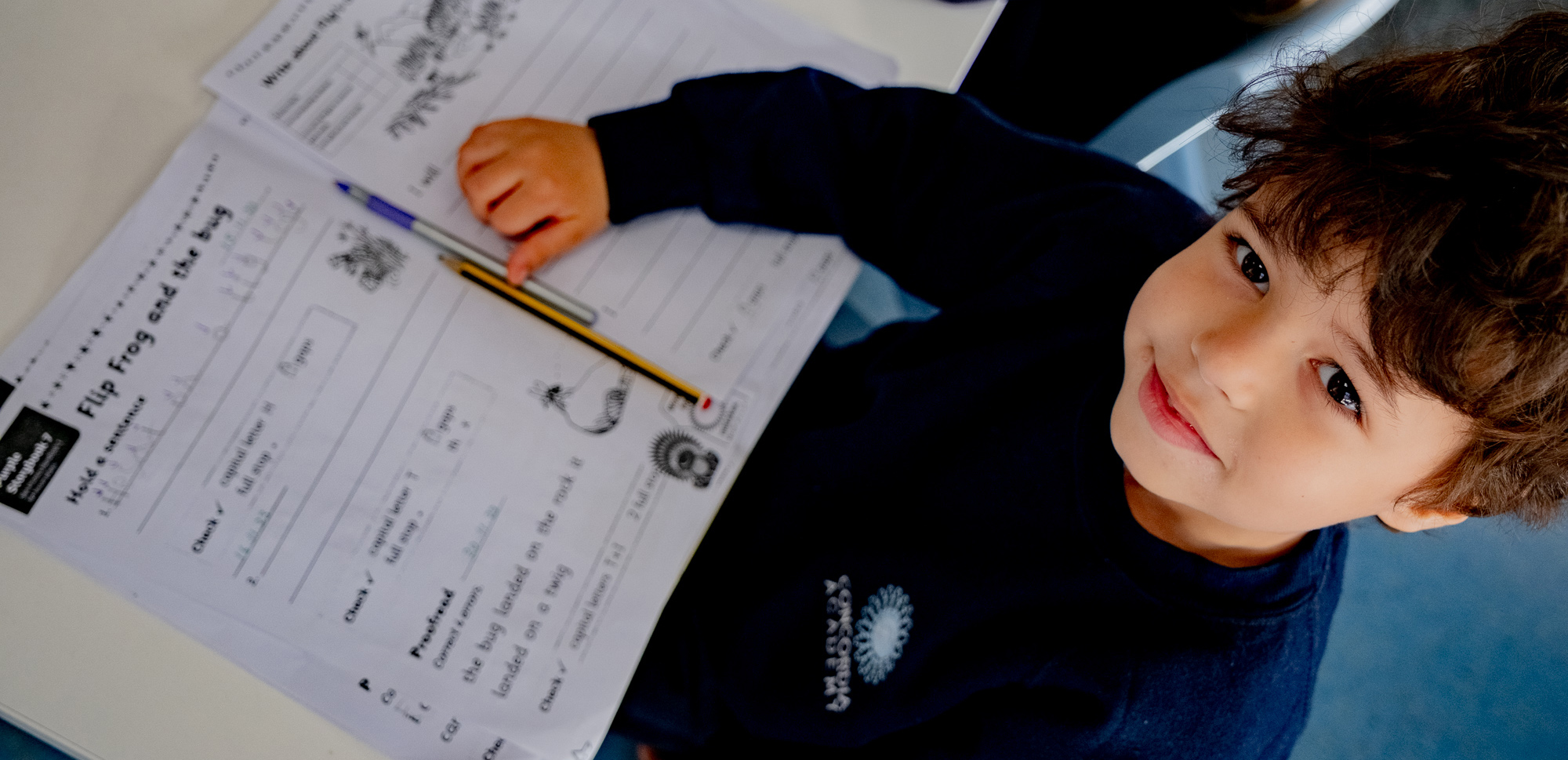
Read Write Inc.
To early readers, we teach a structured phonics programme called Read Write Inc. to ensure that no child is left behind. To find out more about RWI click on our Phonics page.
Literacy Tree
Once they have attained reading fluency, children in Reception and Y1 progress from Read Write Inc. to our Literacy Tree programme from Y2 onwards. Through this, children build their literary repertoire through high-quality text choices with clear rationales and deliberate sequencing of literature across the school. High-quality, award-winning texts by new and significant authors are chosen for their literary merit. Texts are linked thematically rather than by topic in order to support children to make strong connections between texts studied. Themes have links across year groups to allow children to make connections with texts previously studied. Through high quality book talk, themes, conventions and connections are explored and background knowledge is carefully considered. Curriculum mapping ensures that there is deliberate sequencing through texts from one year group to the next.
Children are given frequent writing opportunities for a range of purposes and audiences which are presented through the cycle of short, longer and extended writing outcomes, supporting children to practise and apply their skills to become more independent writers.
Regular oral rehearsal and drama techniques are built into sequences of learning as a key component of the Teach Through a Text approach. Debate and discussion are woven into learning journeys as a fundamental part of the approach to allow children to practise, refine and apply their spoken language knowledge and skills.
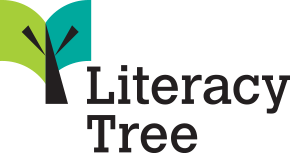
For further information on our Literacy curriculum:
Reception Literacy Progression Map
Y1-Y6 Literacy Progression Map
Y1-Y6 Grammar and Punctuation Progression
Reading for Pleasure
Reading for Pleasure remains a whole school priority. Reading enjoyment has been reported as more important for children’s educational success than their family’s socio-economic status (OECD, 2002). We believe that a whole school Reading for Pleasure culture must be ‘lived’ by all members of staff as well as being embedded into the school structures and routines. It is everyone’s responsibility to promote and maintain enjoyment of reading.
Reading is a regular occurrence in every class and on every day of the week. Teachers follow a clear model of how to teach children to read and to develop a love of reading:
1. Effective teacher modelling of reading which enthuses, engages and articulates reading processes.
2. Partner reading which allows for children to monitor and support each others progress and to facilitate frequent paired discussion.
3. Giving children opportunities for individual reading throughout the week.
We encourage reading at home and support parents to understand how to read to/with their children. Teachers further promote reading for pleasure through making recommendations and informal book talk; including by promoting our now annual Scholastic Book Fair and World Book Day. Book corners are well used, ‘lived in’ spaces with a limited number of high quality texts that children are able to borrow. All children go to a local library on a termly basis.
Handwriting
At Concordia we follow the Nelson Handwriting Scheme from Year 1 onwards. We expect our children to join well by the end of Year 2 and to develop a personal style by the end of Year 6. See the gallery below for images of some of our incredible handwriting!
